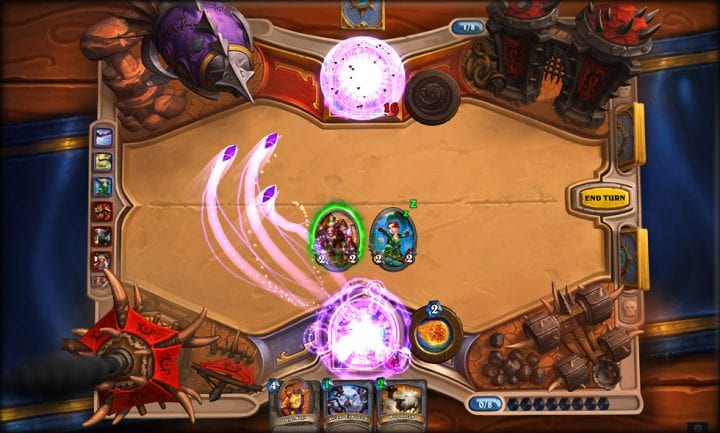
CCG 101: Card Cycling and Top Decking
by JR Cook - 11 years ago show comments
Despite all of the planning that you might put into a new deck, there will always be a level of pure luck involved in how well it will perform during any given match. Even if your mana curve heavily favors lower cost cards and you only have four or five cards that cost a high amount of resources, there will be a game where you will find yourself sitting with nothing but those cards in your starting hand. Another scenario is perhaps you have the perfect draw in the late game, maybe a spell that will deal just enough damage during your turn to win just before your opponent finishes you off. Luck will always be a factor due to situations like this, but there are ways to manage it.
One of the main things that any CCG player worth his or her weight in booster packs wants to avoid is the perilous situation known as “Top Decking”. Top Decking is where you have used all of the cards in your hand and must rely on the single draw at the beginning of each turn in order to see what you can do. The problem with this situation is that it takes all of the strategy out of the match and makes it little more than any other card game. You no longer get to plan our your next few moves but must instead pray that you draw just the card that you need, but chances are that won’t happen. The more cards in your hand, the better off you’ll be.
There are some simple ways to avoid top decking. The most obvious is to not throw out all of your cards when you can. This is difficult for many new players since there is little resource management involved in any given CCG match. After all, your resources tend to replenish themselves at the start of your next turn, so you might feel that there’s really no reason to save them. However, what you should be trying to save are your cards themselves, especially ones that have extra abilities that can turn a given situation around. Even if you have just enough mana to play every card in your hand, always think about how those cards might be able to help you better later on. Not only does this give you some extra wiggle room and keeps you from having to rely on the next card in your deck, but it also keeps your opponent on their toes. If someone sees that their enemy is top decking, there is no more guesswork for them; they know what you have and know exactly what to do next. By keeping cards in your hand, you force an extra layer of caution on your opponent, even if all you have is fairly useless.
The other way to prevent top decking is by using cards that allow you to manipulate your deck in various ways. The most common are cards that simply allow you to draw another card when they are used, but sometimes they’ll do other things such as letting you see the next few cards in your deck and pick the one that you want or let you take a card back from your discard pile. This is often called Card Cycling, and cards that perform this vital role belong in just about any competent deck. Card Cycling can save a game from the brink of top decking or prevent you from ever getting close by ensuring that you have more options than the basic one-card-per-turn system allows.
CCGs use a balancing scale between strategy and chance. No matter how much you plan, there is no way to escape from Lady Luck completely. By using Card Cycling cards and doing your best to avoid Top Decking, you can attempt to tip the scales a bit more towards the strategic elements of CCGs, and therefore greatly improve your chances of winning. To quote Zenstyle who is probably one of our best players here at Hearthpro, it’s about doing your best to create order out of chaos.

